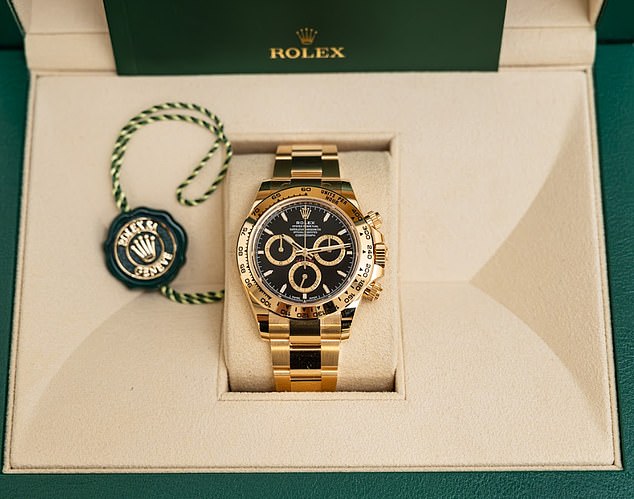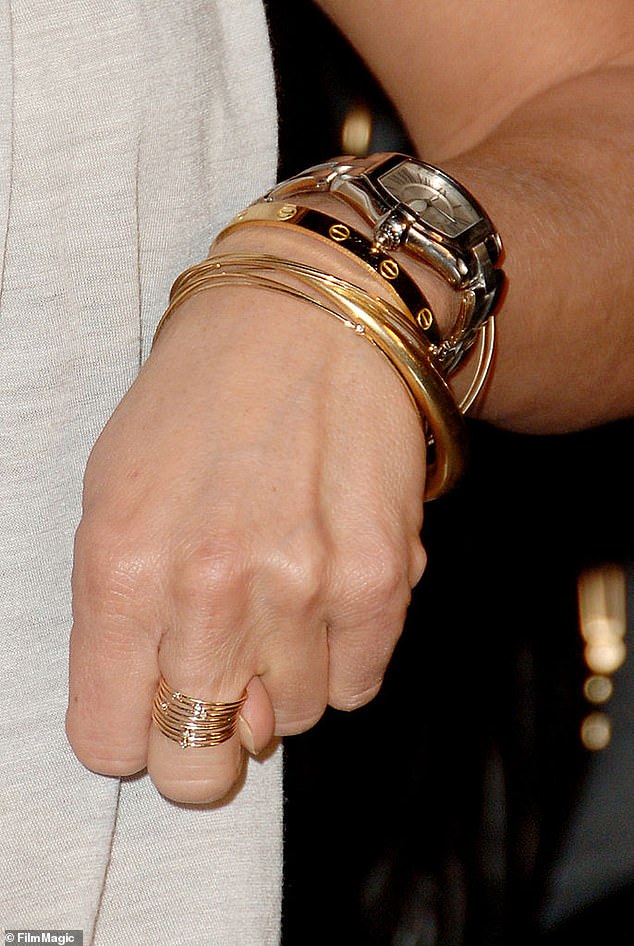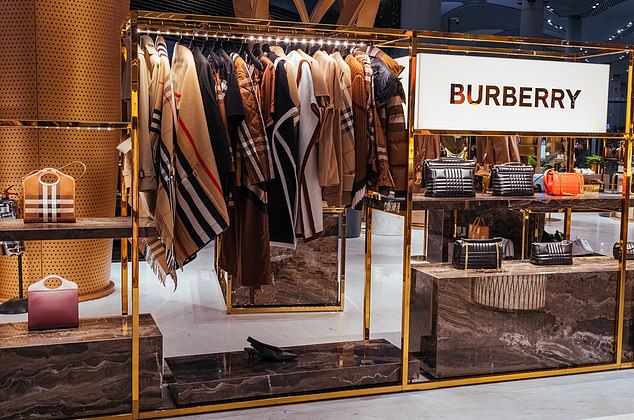REVEALED: The ultra-luxurious designer clothing and jewelry brands that had a TERRIBLE Christmas…and which rivals made buckets of cash
The British main seller of Rolex, Omega and Breitling watches has become the latest luxury brand to fall victim to dwindling profits after an unimpressive holiday period.
Watches of Switzerland said on Thursday it had experienced “volatile trading performance in the run-up to and after Christmas”, sending the group’s shares plunging by more than 30 percent.
CEO Brian Duffy blamed the dip on customers “allocating spend to other categories such as fashion, beauty, hospitality and travel.”
That said, vendors like Richemont, a Swiss group that sells brands like Cartier and Jaeger-LeCoultre, were unaffected. They recorded an increase of 11 percent after reporting an 8 percent increase in sales for the three months to December.
Nevertheless, Duffy assured analysts on Thursday that his $1.1 billion company – Britain’s biggest retailer of Rolex, OMEGA, Cartier, TAG Heuer and Breitling – would soon devise strategies to adapt.
Rolex’s leading UK seller has become the latest luxury brand to sound the alarm over dwindling profits – after an unimpressive holiday season. Pictured: Tom Hardy wearing a Rolex Explorer II ref. 216570 with white dial

Meanwhile, Richemont, a Swiss group that sells brands such as Cartier and Jaeger-LeCoultre, was unaffected, recording an 11 percent increase in market share after an 8 percent increase in sales after December. Pictured: Jennifer Aniston wearing a Cartier bracelet in 2009
“We’re sorry we didn’t see it coming more than we did, we’re adapting to it, we’ve recalibrated it now (and) we’re working on our long-term plan,” Duffy, 69, said.
He admitted that year-end results were “disappointing” and claimed the company had received a different mix of Rolex watches than normal from the Swiss manufacturer, causing average sales prices to fall.
He explained how Rolex – a privately held company that generates more than $10 billion in sales – sent the company primarily watches made of steel, rather than the more expensive combination of steel and gold.
“They produced more steel and less precious metal and that was a surprise to us and quite late in the period,” the company head said.
Duffy claimed that he and others “did not expect a decline in our average selling price” nor “that change in the product mix.”
A change in the total number of watches received from Rolex – the retailer’s most sought-after brand – could also have caused the profit dip, Duffy said:
He theorized that the shift could serve as evidence of a more conservative approach from watchmakers amid decreased buyer confidence, as the industry has reported declining demand in both the U.S. and Europe, where rising prices have prompted people to reduce their spending .
“The festive period has been particularly volatile for the luxury sector this year,” Duffy explained, before specifically blaming British shoppers for avoiding expensive trinkets over the festive period, unlike their American counterparts.
He said Britain was the “most challenged” market during the Christmas season, impacting not only luxury watch sales but also non-brand jewellery.
Sales in the United States, he said, had grown by “double digits” in the weeks before and after Christmas, as the British supplier continued to expand in the United States.
While disappointed with the decline in spending, Duffy said he remains “confident in the markets we operate in, our model and the execution of our long-term plan.”
“We are encouraged by our market share gains in both the US and the UK,” he said, as Watches of Switzerland remains the largest seller of luxury brands in Britain, with 211 showrooms in Britain, the US and the rest of Europe .
“We remain confident in the markets we operate in, our model and the delivery of our Long Term Plan that was announced to the market in November 2023.”
The setback comes after the company’s shares fell last August to levels not seen since December 2020 – in the midst of the pandemic – raising concerns about the retailer’s continued relevance.
The drop – which, similar to Thursday’s response, included a 27 percent drop in one day – also fueled rumors about the company’s relationship with Rolex, which acquired rival watchmaker Bucherer just days earlier.

The drop has fueled rumors about the seller’s relationship with Swiss-based Rolex, amid fears it is selling more timepieces directly to customers rather than to licensed retailers.
The acquisition led to fears at the time that Rolex would soon start selling more of its timepieces directly to customers — a dynamic that could eat into Watches of Switzerland’s long-standing consumer base.
Peel Hunt analysts said on Thursday that the supposed shift in spending “raised the question” of whether the relationship with Rolex was to blame, according to The Financial Times.
“Regardless, the change in product mix has been extremely damaging and is likely to remain so,” the experts said.
Duffy, meanwhile, told audience members to expect sales in Britain to fall slightly due to the recent arrival, but promised that US markets are doing well.
Thanks to a strong performance in the US – and also in China – Richemont was able to offset the decline in European sales to an overall increase of eight percent over the three months to December.
Sales of Richemont’s high-end brands – which include not only Cartier but also Buccellati and Van Cleef & Arpels – also rose 12 percent in the last three months of 2023.
That said, London-listed luxury goods retailer Burberry wasn’t so lucky, as American tourists who used to buy on their excursions are increasingly choosing to buy from home.

Strong performance in the US helped Richemont – Cartier’s top seller (bracelet seen here)) offset a decline in European sales to an overall increase of eight percent in the final three months of 2023

That said, London-listed luxury goods retailer Burberry wasn’t so lucky, as American tourists who used to buy on their excursions are increasingly opting to buy from home.
Last week, the trench coat maker said it had also fallen victim to weakening demand, expecting a profit drop of around 20 percent for the full year.
Others reporting reduced interest include LVMH – the owners of brands such as Christian Dior, Fendi and Givenchy – and Kering, the parent company of Gucci and Balenciaga.
All reported late last year that interest in the sale was waning, and could issue similar statements in the coming months as the full financial implications of the holidays come to fruition.
An exclamation point on the emerging phenomenon is the fact that luxury fashion purchases fell 9.6 percent year-over-year in November.
Similar statistics could be seen in the coming weeks, when earnings reports for the fourth and final quarter of fiscal 2023 are revealed.
Still, Duffy said Thursday about his 100-year anniversary that our model is very well positioned competitively, we feel very good about the future.’
